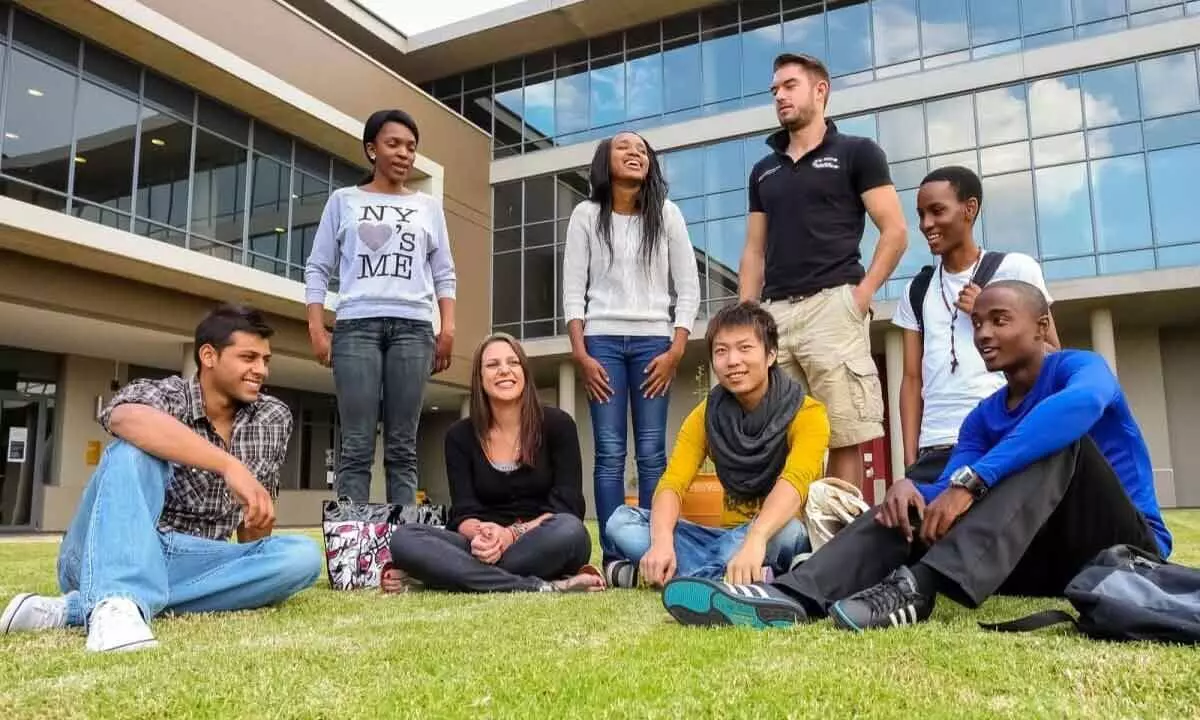How varsities are fostering inclusive, diverse culture

How varsities are fostering inclusive, diverse culture
Diversity and inclusion are likely to enhance the student’s social and academic development. This promotes academic performance and allows students to develop enduring friendships. Students who engage with peers of other races and ethnicities demonstrate considerable improvements in cognitive abilities, including critical thinking and problem-solving.
A university is where students follow their goals, advance their careers, cultivate deep bonds with others, and make lifelong experiences. Here, students are holistically sculpted to prepare them for the future. Additionally, they can gain priceless knowledge and life skills, one of which is the importance of inclusion and diversity.
Humans have an innate yearning to learn about the world and its wonders and develop their own understanding of them. A friendly and inviting university should be accessible to everyone. The educational systems have historically fizzled out to provide children from marginalised populations with this opportunity. The significance of diversity and inclusion (D&I) in all settings, including colleges, has recently been brought to the fore of the public discourse. All kinds of institutions and organisations have increased their D&I activities and launched new ones.
Inclusion and diversity: Today's imperative
Diversity denotes the campus' perception as a welcoming atmosphere for any aspiring student. On the other hand, inclusion describes a friendly attitude toward students with various interests and objectives. The fact that these universities accept students for who they are makes them stand out. Students can easily thrive in a vastly diverse environment that supports these causes while also earning recognition for being progressive.
Furthermore, diversity and inclusion are likely to enhance the student's social and academic development. This promotes academic performance and allows students to develop enduring friendships. Students who engage with peers of other races and ethnicities demonstrate considerable improvements in cognitive abilities, including critical thinking and problem-solving.
Students get to know people from all over the world, live with them, develop relationships, and discover more about one's lifestyles and preferences. Additionally, they learn about the differences between their cultures and traditions and have the chance of a lifetime to broaden their perspectives. As a result, institutions are working hard to foster a welcoming and diverse campus environment. Inclusivity and diverse cultures are needed. Peer learning is more important, and it always comes from diversity.
Therefore, interdisciplinary activities have to be taken up. For instance, the student knowing specialization in a particular domain may not be helpful if he doesn't apply to the societal aspect. Using the knowledge of the societal aspect combined with the latest technology can be beneficial. Since societal problems cannot be solved with one domain and specific thing, interdisciplinary activities are essential. Hence, a university must incorporate diversity and interdisciplinary activities for personal growth.
Benefits of inclusion & diversity in universities
The advantages of diversity in universities are extensive and have a significant positive impact on student's academic and social experiences and their future. The benefits of diversity allow students to collaborate with people from other races, nationalities, and cultural backgrounds and challenge their assumptions about the world. This results in greater awareness, comprehension, and acceptance of various ideas and customs.
Feeling of belongingness
Students will have a sense of belonging if they can learn with others they can relate to. Students are more likely to speak up and feel safe asking questions when they feel at ease in their surroundings. A person is less inclined to contribute to the group and may feel less confident when isolated and alone.
Equal opportunities for all
The institutions work to offer everyone top-notch educational opportunities as well as other amenities like sports, cultural events, research, development, etc. They guarantee the abolition of barriers based on race, caste, or ethnicity. Equality is encouraged, and there is no partiality or preferential treatment. Moreover, students are encouraged to take part and cooperate.
Enhance creativity
The ability to think and act creatively is aided by exposure to ideas, viewpoints, and cultural backgrounds from many backgrounds. It offers a setting where being open-minded is cherished rather than discouraged. A person can make a better approach to a subject or solve an issue from numerous points of view the more ideas and experiences they engage in.
Improves critical thinking skills
It's simple to accept things as they are in life. One can only learn one style of thinking or acting when growing up in a community of like-minded individuals. However, when there is diversity in the classroom, students can consider the thoughts, cultural perspectives, and opinions of persons from various backgrounds.
This can make people reevaluate their childhood beliefs and foster critical thinking.
Promoting quality
The universities encourage students to get above differences in race, religion, and culture. They impart equal knowledge to students. They advocate valuing talent and skills, as well as ending prejudice-based discrimination. Additionally, they encourage children to strive for success based on their academic achievements, perseverance, and merits rather than their ethnicity, race, belonging to the majority, or privilege.
(The author is the Chancellor, KL Deemed to be University)











